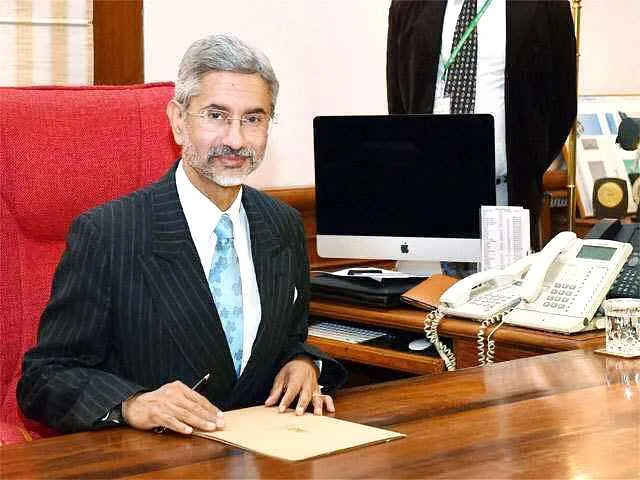Political leaders, professional diplomats and internationalrelations’ academics view the interplay of interstate relations from differentperspectives.
Academics seek toprobe, understand and analyse the processes which underlie foreign policymaking as well the web of various interstate and increasingly non-governmentalrelationships which bind states and peoples.
Diplomats advise political leaders on foreign policy makingand manage day-to-day interstate interactions. The fact that global politicalleaders are now often in direct contact has not diminished the managerial roleof diplomats.
Political leaders set the direction, tone and texture ofinternational ties. While taking foreign policy decisions they are guided bynational interests and by what their peoples will find acceptable; the latteris especially so in democratic countries. Unless ideologically driven politicalleaders evaluate a specific decision’s costs and benefits for their countriesas well, where applicable, for themselves. They often display an instinctive understandingof the contemporary world and what they want for their own country. Usuallythey take little interest in diplomatic management or scholarly analyses.
How do professional diplomats or international relations’academics conduct themselves if they become foreign ministers? It will beinteresting to observe the new external affairs minister SubrahmanyamJaishankar who retired as foreign secretary after more than forty years as aprofessional diplomat only sixteen months ago lead the ministry of externalaffairs. In this context several questions arise. Among them:
Will Jaishankar continue to approach the formulation offoreign policy as a professional diplomat or as one who has suddenly transitedinto political life, holding a very senior political office? Will hisinterventions in the cabinet committee on security now, as foreign minister, bequalitatively different from what he advised the committee as foreignsecretary? Will Jaishankar give his political colleagues a peep into thecomplex webs which embrace the world and enable its movement in allspheres—political, economic, financial and commercial, social, cultural andacademic, especially scientific and technological— and how they are morphingthough to different extents and at different speeds?
The answers to thesequestions may indirectly become visible, over time, in the positions that Indiatakes on global and regional issues but there is no doubt that the world order,as Modi begins his second term, is changing. A probe into the present worldorder would be rewarding.
The present global order is characterised by multi-polarity.Most international relations scholars hold that the Cold War was defined bybipolarity: two ideologically opposing and adversarial camps struggled forinfluence and control or over four decades. The end of the Soviet Union and thefading away of the communist system across the world in 1991 led to unipolaritywith the United States remaining as the sole super power. However, now almostthree decades have passed and political power has become more diffused evenwhile the US remains the world’s pre-eminent state.
How does multipolarity play out in reality? But first, whatare the attributes of a ‘polar’ state? A’polar’ state is one which can influence or mould the course of events beyondits borders through the projection of power. Now, there are many kinds ofpower—military, economic and even what is popularly known at present, as softpower. A ‘polar’ state has to possess not only military power but also areservoir of economic strength and preferably characteristics of soft power. Withoutthese a state cannot qualify as ‘polar’ even if its possession of nuclearweapons, such as in the case of North Korea can deter the use of force againstit. Some countries have the ability to meddle in the affairs of neighbouringstates but this does not lead to ‘polar’ status.
‘Polar’ states effectively participate in global andregional rule-making. And, paradoxically, if international rules go against itscore interest it has the power to ignore them. Thus, China has demonstratedsuch an ability in the case of international tribunals ruling against itsconduct in the South China Sea.
No power, including the US can straightforwardly or easilyimpose its will. It has to patiently use the different levers it possesses tobend other states to its view. Even then success is not guaranteed. Theexperience of the US in Afghanistan is instructive. Despite all its power it isin strategic retreat. It can be argued though that if it had really wanted toeliminate the Taliban it could have done so. But that is a differentexploration.
President Trump’s Iran policy also sheds light on thecurrent multipolar world order. He is determined to bring about regime changeand is relying on financial, commercial and economic power with the potentialthreat of the use of force. He has imposed sanctions and has demanded that nocountry should buy Iranian oil; if it does, its entities will have to facecommercial and financial sanctions. India seems to have agreed to severelyrestrict its imports of Iranian oil but China is showing reluctance. It is notclear how this will evolve for Trump does not follow a consistent line.
India has many attributes of a ‘polar’ state. Some of theseare substantial-military strength, soft power, a large market; others aredeveloping, such as scientific and technological capabilities. It has nowreached the position of playing the game of ‘polar’ powers when and where itsinterests demand so and staying on the side lines when that is the prudentcourse.
Jaishankar will berequired to give fresh insights to Modi and the CCS as India plays the game of’polar’ powers.






